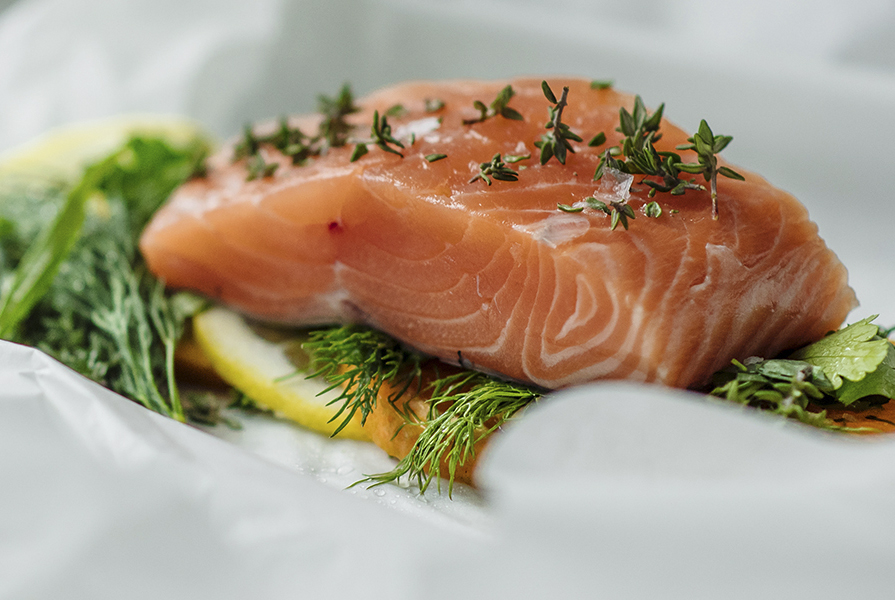Angling activists to boycott farmed salmon

A LOBBY group representing sports fishermen and river owners said it will boycott Scottish farmed salmon in protest over industry growth.
Farmed salmon, which is the UK’s biggest food export and supports around 12,000 jobs in Scotland, was the subject of two parliamentary inquiries in 2018.
These were prompted by a petition drawn up by Salmon and Trout Conservation Scotland (S&TCS), the body that represents angling interests, and which blames salmon farms for the decline of wild fish stocks.
Holyrood’s Rural Economy and Connectivity (REC) committee published a report towards the end of 2018 with several recommendations for change within the salmon sector.
It stopped short, however, of calling for a moratorium on expansion, to the disappointment of anti-salmon farming campaigners.
Andrew Graham-Stewart, director of S&TCS, said: ‘In January 2019 Cabinet Secretary Fergus Ewing committed to making ‘tangible early progress’ on the findings of the inquiry. He has not honoured that commitment.
‘He set up two working groups to address the impacts of salmon farming on wild fish. Over a year later, these groups are way behind schedule, are still deliberating and there is no timeline for them to reach any conclusions.
‘We no longer have any confidence that introducing effective regulation of salmon farming is a Scottish government priority.
‘Unless Scottish ministers have confirmed by Easter that they are putting in place appropriate statutory and/or regulatory measures to protect wild salmon and sea trout and that these measures will be in place and in force by the end of 2020, then S&TCS, together with many other organisations supporting this statement, will call and campaign for a full and complete boycott of all Scottish farmed salmon products.’
The Scottish Salmon Producers Organisation (SSPO) said the salmon sector is working hard with the Scottish government and regulators to create a better environment for sustainable growth.
Farmers are making ‘a series of significant changes, to ensure that growth and sustainability can go hand in hand’.
Hamish Macdonell, director of strategic engagement at the SSPO said: ‘Scottish salmon farming has a great environmental story to tell.
‘It remains the UK shopper’s fish of choice, in supermarkets and in fishmongers, because it is a healthy, tasty, responsibly sourced product.
‘It is unsurprising that these pressure groups, having failed to get what they wanted during an exhaustive parliamentary process which found ‘a lack of definitive scientific evidence’ of any link between salmon farming and wild fish numbers, are leading this latest initiative.
‘Scotland’s farmed salmon sector has adopted a whole raft of new measures in the year since the RECC report came out, proactively publishing more data than ever before, more quickly than ever before.
‘Fish health and welfare has never been a higher priority, with sea lice levels at their lowest for six years, and medicine use significantly reduced.
‘We are confident in the ability of our sector to continue to enjoy the trust of consumers, not just in the UK but all over the world, for many years to come.’
Earlier this week, the Scottish Environment Protection Agency (SEPA) confirmed the salmon sector’s environmental credentials, with statistics showing that a record 87 per cent of sites demonstrated ‘excellent’ or ‘good’ environmental performance in 2018.
The SSPO has issued a briefing paper setting out what changes the industry has made in the past 12 months.
These include the introduction of faster reporting of information in sea lice and fish survival on farms.
‘As a direct result of these efforts, Scotland is now leading the world in the reporting of salmon survival data and in the sustained management of sea lice,’ said the SSPO.
The industry has also initiated closer working with wild salmonid interests, although MSPs concluded there was a lack of definitive scientific evidence on the potential effects of salmon farms on wild salmon and sea trout.
Discussions between the farmed salmon sector and the wider angling community, as represented by bodies such as Fisheries Management Scotland, have been ‘productive and fruitful’, said the SSPO.
Fisheries Management Scotland is not mentioned by S&TCS in the list of groups supporting its call for a farmed salmon boycott.

